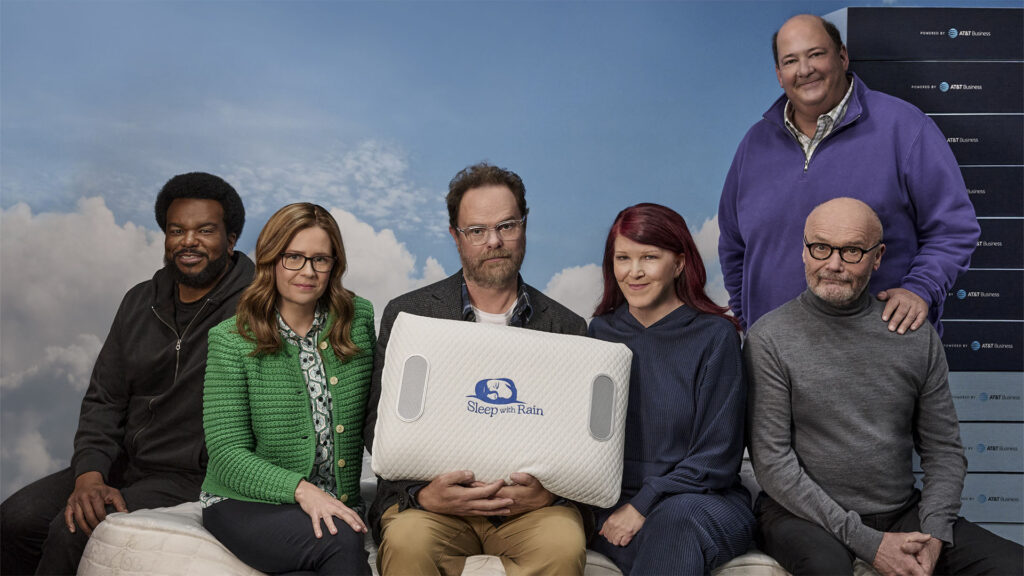The pandemic has transformed the way we work. With offices around the world shut down, many people have had to adapt to working from home.
But even when the world reopens fully, the effects of the pandemic will likely impact the way people work for years to come, as teams learn to work together remotely in new and creative ways.
“The future of work is not about where we are, it is about what we do,” said Aruna Ravichandran, CMO, Cisco Webex at Brand Innovators’ latest Livecast on The Future of Work on October 14. “The pandemic has proven that work can happen anywhere and anytime — and productivity continues no matter where you work. The future of work is here now and it’s here to stay, and in my mind, we will see a hybrid model as we look ahead.”
As companies have adapted to the new era, many have been focused more on their outward brands than on their internal workforce — a mentality that will have to change if companies want to maintain top talent.
“Companies have been so focused on communicating their brand value and their value proposition to their consumers that there has been some neglect on the employee side,” said Amy Bixler, Global Brand Design Leader, Gensler. “Even if you segment workers and employees beyond the segment of generations but by where they’re actually at in their career and the options they’re considering, the brand of the employer becomes really important.”
“Relating to shared values, it’s really an opportunity for companies to stand for something and really talk about what those values are – not to make everyone carbon copies of one another but to be on the same page on how we make decisions,” she added.
Here are four key takeaways from the livecast, including additional insights from senior marketers at Industrious and Creative Spirit:
Create shared values. Companies must relate to the people that work for them through human connections and shared values. Workers want to know that their employers respect their values and will support them.
“Relating to shared values, it’s really an opportunity for companies to stand for something and really talk about what those values are – not to make everyone carbon copies of one another but to be on the same page on how we make decisions,” said Gensler’s Bixler.
For Ford Motor Co., creating shared values is also key, along with developing a long-term plan to support career growth for younger workers.
“In the next ten years, the Ford workforce will turn at a rate of 60%, which means we’ll have a younger, more nimble workforce and a new set of values to account for and to champion,” said Jennifer Kolstad, Global Design Director, Ford Motor Co. “We have five generations working together under one roof, so we come at this with a shared value proposition. We need to really think about what our shared values are.”
Understand your global workforce’s diversity. Ford has a diverse group of employees around the globe, making all the more important for the company to understand various cultural differences of its global workforce.
“We have our workforce, our employees, who we care for very much,” Ford’s Kolstad added. “We have employees all over the world with different nuances, and different cultural considerations to think about. We have customers, a retail audience to think about. We have community members. All of that sort of rolls up to this kind of think tank in this new COVID state. This is a lot of responsibility to think through. When we’re thinking through these problems, what does this new world afford us, we categorized this as ‘What are our new non negotiables?’ thinking laterally across that group.”
Offer employees flexible options. Flexible office space firm Industrious is focused on being a warm, welcoming place where everyone can work and feel productive. By creating a workplace that invites flexibility, companies will be better able to retain talent.
“Almost every company is shifting towards giving employees the choice of where to work and when,” said Jamie Hodari, CEO, Industrious. “People aren’t going to come to the office five days a week anymore and there’s going to be less and less willingness from employees to sit in the same chair for ten hours a day. The core themes here are more employee empowerment and a more distributed way of working. Instead of having a one-size-fits-all workplace, you’ll see more diversity in spaces and the ability for employees to move throughout.”
Prioritize accessibility. National Disability Employment Awareness Month celebrates 75 years this month. As employers reimagine the workplace for all potential candidates, accessibility for all will be a key driver of the future of work.
“The future of work in my opinion is completely intersectional,” said Laurel Rossi, Founder, Creative Spirit. “It’s so important to get those who are marginalized to the table and employment is the way forward. A change we’ve seen from this year is that people have been incredibly curious and focused on the idea of hiring a more intersectional talent pool. We no longer need to start the conversation with ‘why you need to do this’ but can jump right into ‘how to do this.’”
To watch the event in full, go to Brand Innovators’ Video On Demand page.




